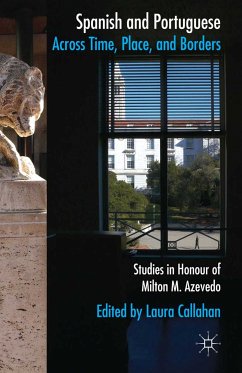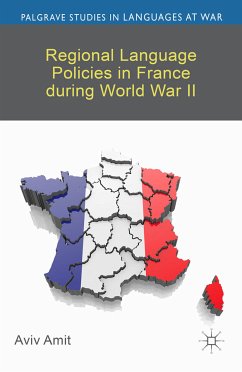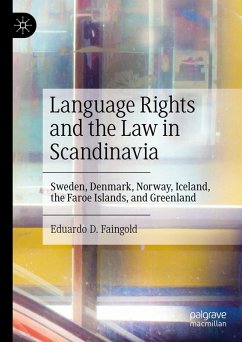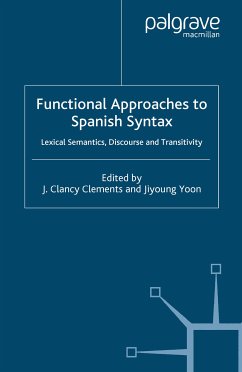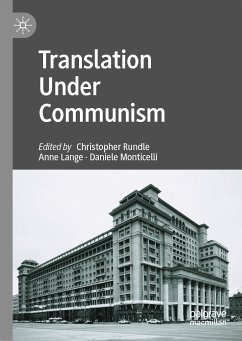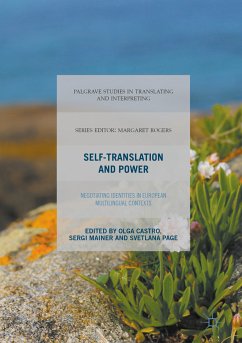
Self-Translation and Power (eBook, PDF)
Negotiating Identities in European Multilingual Contexts
Redaktion: Castro, Olga; Page, Svetlana; Mainer, Sergi
Versandkostenfrei!
Sofort per Download lieferbar
112,95 €
inkl. MwSt.
Weitere Ausgaben:

PAYBACK Punkte
56 °P sammeln!
Analyses the role of self-translation by placing an emphasis on power
Examines self-translation within the multilingual European context
Focuses on interactions between minority and majority European languages
Dieser Download kann aus rechtlichen Gründen nur mit Rechnungsadresse in A, B, BG, CY, CZ, D, DK, EW, E, FIN, F, GR, HR, H, IRL, I, LT, L, LR, M, NL, PL, P, R, S, SLO, SK ausgeliefert werden.



